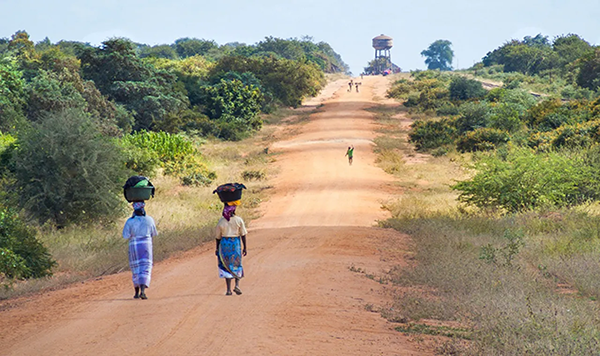-

Sexual Minority Rights
Kuukuwa Andam and Marc Epprecht
Chapter Abstract:
This chapter will assess the experiences of sexual minorities in Africa, using a case study of Ghana to argue that the entrenchment of democracy does not necessarily correlate with better rights for all minorities, particularly for LGBT+ individuals. Contrary to popular rhetoric among many human rights activists and supporters, an enhanced democracy does not necessarily lead to the protection of the rights of all minorities. In fact, the evidence suggests that democracy can be utilized as a tool by a majority to deny the freedoms of historically oppressed populations. With this in mind, the chapter proposes that courts of law, both domestic and international, can act as alternative options for the advancement and enforcement of sexual minority rights.
Book Abstract:
This volume explores the issues and debates surrounding the ongoing processes of democratization in sub-Saharan Africa, illuminating the central dynamics characterizing Africa?s democratic experiments, and considering the connections between democratization and economic, social, and cultural developments on the continent.
Reflecting the diverse and rich nature of this field of study, the Handbook of Democratization in Africa features more than thirty contributions structured into six thematic sections:
- The politics and paths of regime development
- Institutional dynamics
- Political mobilization and voting dynamics
- The politics of identity
- Social forces from below
- The consequences of democracy.
Chapters offer overviews of the key scholarship on particular topics, including central insights from the latest research, and provide suggestions for those interested in further inquiry. The material includes attention to broad cross-continental patterns, for example with respect to public opinion, political violence, or the role of different institutions and actors. It also includes rich case material, drawing on and highlighting the experiences of a diverse collection of countries.
Encouraging a comprehensive view of key concerns and enhancing understanding of particular issues, the Handbook of Democratization in Africa represents a critical resource for experts and students of African politics, democratization, and African studies.
Chapter 18 of this book is freely available as a downloadable Open Access PDF under a Creative Commons Attribution-Non Commercial-No Derivatives 4.0 license.
-

Sophia Akuffo
Kuukuwa Andam and Sena Dei-Tutu
Chapter Abstract:
Justice Sophia was sworn in as the 13th Chief Justice of Ghana on June 19, 2017. Prior to this, Akuffo had served as the first female President of the African Court on Human and Peoples’ Rights (ACtHPR) in 2012, as Vice-President of the ACtHPR in 2008, and as a Justice of the Supreme Court of Ghana since 1995. This chapter tracks Akuffo’s career from her birth in Akropong-Akuapem, in the Eastern Region of Ghana, to her appointment as the second female Chief Justice of Ghana. In particular, a selection of cases that Akuffo delivered judgments on will be analyzed as a means of contextualizing Akuffo’s legal philosophy. Additionally, this chapter will examine some of the challenges Akuffo faced as well as the lessons learnt during her legal career. In identifying the barriers that Akuffo encountered, this chapter considers the similarities between Akuffo’s experience and the experiences of thousands of female lawyers and judges working on the African continent, with a mind to highlighting avenues for increasing the participation of African women on international courts. The chapter concludes with some observations and future research questions.
Book Abstract:
A sequel to Bauer and Dawuni's pioneering study on gender and the judiciary in Africa (Routledge, 2016), International Courts and the African Woman Judge examines questions on gender diversity, representative benches, and international courts by focusing on women judges from the continent of Africa.
Drawing from postcolonial feminism, feminist institutionalism, feminist legal theory, and legal narratives, this book provides fresh and detailed narratives of seven women judges that challenge existing discourse on gender diversity in international courts. It answers important questions about how the politics of judicial appointments, gender, geographic location, class, and professional capital combine to shape the lives of women judges who sit on international courts and argues the need to disaggregate gender diversity with a view to understanding intra-group differences.
International Courts and the African Woman Judge will be of interest to a variety of audiences including governments, policy makers, civil society organizations, students of gender studies, and feminist activists interested in all questions of gender and judging.
Printing is not supported at the primary Gallery Thumbnail page. Please first navigate to a specific Image before printing.


